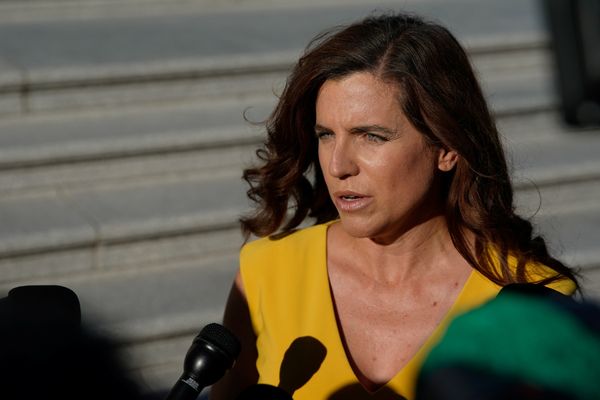If you thought it was becoming more difficult to find a bulk-billing GP in Tasmania, you would be right.
Tasmania continues to have the lowest bulk-billing rates of any state, with a significant drop during the last financial year, according to data released by the federal Health Department on Monday.
It showed 44.8 per cent of Tasmanians were always bulk-billed at the GP, compared with 15.6 per cent who were never bulk-billed.
The remainder were "usually" or "sometimes" bulk-billed.
Tasmania is behind all other states — with the gap widening over the past 10 years — but has better rates than the ACT, where average incomes are considerably higher.
The cost of visiting a GP is also a problem in Tasmania, with an estimated 7.6 per cent of people avoiding it for financial reasons, according to the Productivity Commission. That rate is highest in the country and more than double all the other states apart from NSW.
Tim Jackson, chair of the Royal Australian College of General Practitioners, said there needed to be a balance to ensure everyone had access to a GP and clinics remained financially viable.
"We should be concentrating on … who's not coming to the doctor because it's going to be a cost they can't afford," he said.
"They're the ones we need to be able to bulk-bill, and to do that, we need an increase in the Medicare rebate.
"It's up to the individual doctor to decide what he bills when he sees the patient. We know our patients well and we generally know the people who are struggling.
"It was never going to be sustainable when the Medicare rebate, in my 30 years of being a GP, has never gone up as much as the cost of providing a service, or CPI.
"It was designed to fail, and we've come to a situation where really something drastic needs to happen."
Dr Jackson said the "proliferation" of large bulk-billing clinics — with standard six-minute consultations — in mainland capital cities could be a factor in their higher rates.
"It's very hard to look after someone with complex needs in six minutes," he said.
"Some item numbers, particularly for chronic-disease management, are well remunerated by Medicare and so have higher bulk-billing rates.
"It's the visits under 20 minutes, though, where you get less bulk-billing."
Tasmania's peak social services organisation, TasCOSS, carried out reporting on access to health care last year, regularly hearing from people who would not go to a GP unless they were bulk-billed.
The decision to bulk-bill has largely been up to the discretion of the GP.
There have been several recent examples of Tasmanian clinics, particularly in rural areas, shutting down due to financial issues, leaving large regions without access to a doctor.
TasCOSS acting chief executive officer Charlie Burton said the problem became more acute in the regions.
"Access to bulk-billing GPs is pretty poor across Tasmania … we certainly hear from Tasmanians, if you're outside of major population centres, it's even harder."
The Productivity Commission also found that 40 per cent of emergency department presentations in Tasmania could have been avoided if the person had seen their GP or pharmacist.
Dr Burton said the difficulty in accessing a GP was having flow-on effects.
"[We need to] make sure that seeing a doctor isn't considered a luxury," Dr Burton said.
"We know that universal healthcare is a bit of a misnomer nowadays. Like anything, people on higher income have easier access to the basics, and this is something that we think really needs to change."
Medical students shunning GP career
The problem is being compounded by a decreasing number of graduates choosing to become GPs.
The proportion of medical students choosing general practice in Australia continues to decline, with the figure at 14 per cent.
Tim Strong, head of the University of Tasmania's school of medicine, said the situation was similar in Tasmania.
He said the decision to go into other medical specialties came down to the culture or practice environment that students experienced, the mentoring they received, and the pay.
"We're well aware that the students who are graduating are expressing a preference or an interest in general practice at lower rates than they have in the past," Dr Strong said.
The university has taken on 130 new medical students this year, a slight increase on previous years.
About 75 per cent are from Tasmania, and the university averages about 45 per cent who will continue to practice in the state after graduating.
The Tasmanian government and Commonwealth have formed a partnership in an attempt to make rural general practice more attractive for GP registrars.
Tasmania's Premier Jeremy Rockliff called for the federal government to do more.
"We know that some Tasmanians are having trouble with timely, affordable access to a GP and we need the [federal] government to address the GP viability issue so that more Tasmanians receive the right care, which will also take significant pressure off our hospital system," he said.
"We know that access to timely, affordable primary health care is critical, and despite the best efforts of hardworking GPs, we are seeing falling bulk-billing rates and Tasmanians are having more difficulty accessing GP appointments."
The government has brought in measures to help clinics expand into after-hours services.
Federal Health Minister Mark Butler said his priority was strengthening Medicare and rebuilding general practice.
"I will continue to engage with all healthcare stakeholders, including consumer groups, unions and doctor groups to ensure we increase affordability and deliver our reforms to strengthen Medicare," he said.
"The constant advice we have received across the country is that after nine years of cuts and neglect to Medicare, it has never been harder to see a doctor, and never more expensive, with bulk-billing rates in decline and gap fees constantly going up."







